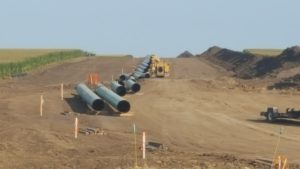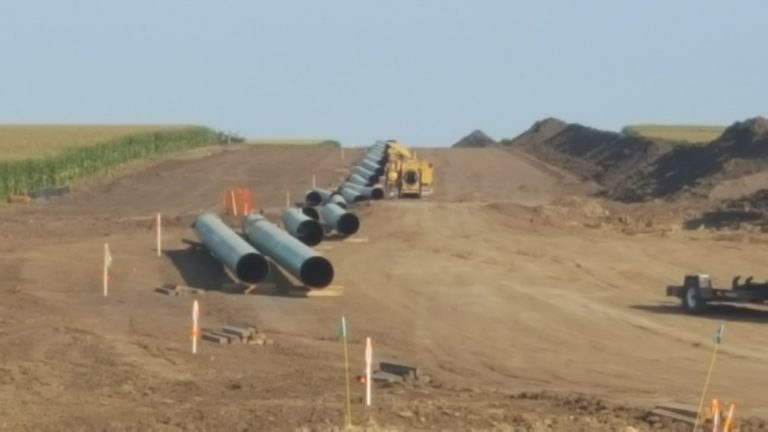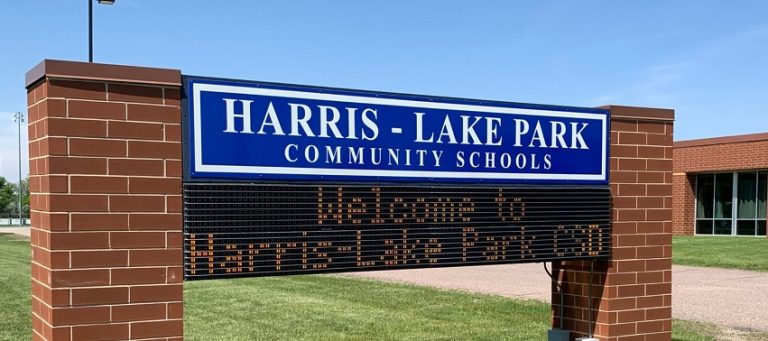 Lyon County, Iowa — A solution has been reached over a Native American burial ground in Lyon County, that will allow construction of the Dakota Access Oil Pipeline, which will transport Bakken crude oil from the oil fields of North Dakota, diagonally across Iowa, en route to Illinois.
Lyon County, Iowa — A solution has been reached over a Native American burial ground in Lyon County, that will allow construction of the Dakota Access Oil Pipeline, which will transport Bakken crude oil from the oil fields of North Dakota, diagonally across Iowa, en route to Illinois.
We told you last month about a roadblock that was thrown in the way of the pipeline by a Native American tribe that said that a portion of the land in the Blood Run area of Lyon County was a culturally significant site that shouldn’t be disturbed. Now, state officials have removed a stop-work order that prevented the pipeline from being built in that area.
According to reports, Dakota Access will run the Bakken Pipeline under the Blood Run site, installing the pipeline 85 feet underground through the use of special boring equipment rather than digging a trench to bury the pipeline. By doing so, the pipeline won’t disturb the culturally significant ground above it, according to authorities. State Archaeologist John Doershuck reportedly signed off on the idea as a “satisfactory avoidance procedure”.
Some Native American leaders say they are not happy with the decision to allow Dakota Access to bury the pipeline under the sacred site. Donnielle Wanatee is a member of the Meskwaki Tribe, and while the pipeline will not go through Meskwaki territory, she is expressing concern that the pipeline builders have been given permission to drill under sacred American Indian ground in Lyon County.
She says that, while the pipeline won’t go through Meskwaki territory, it still impacts them.
Wanatee says this is about more than the people who are protesting right now. She says it extends to future generations as well.
The Army Corps of Engineers has yet to sign off on the Dakota Access Pipeline project, and there are multiple lawsuits in the works trying to block construction of the pipeline.









